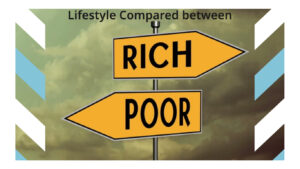There are thousands of books on financial education for beginners on the internet to read. But beginners may find it difficult to choose when they think of reading best one. Finding a book that answers the financial questions that have remained a puzzle in your quest for success is a life-changing experience. Over the time finance experts have experimented so many options which improves wealth and good thing is they have shared their ideas through books. Out of all we have sorted 10 books on financial education for beginners | The Live Time.
“books on financial education for beginners”
Reading books are a great source of knowledge, information and motivation. The more you read, the wiser you become. If you are young and serious about your financial status, these books will be of great help for sure. On that note let’s have a look at 10 books on financial education for beginners | The Live Time ( Financial Management Books).
1. The Psychology of Money by Morgan Housel

The Psychology of Money by Morgan Housel examines personal finance through the lens of human behavior. It’s a fresh take on a well-trod subject; many personal finance books focus on exogenous considerations: e.g. how the stock market works, how to select stocks or build a portfolio, how to time the market, etc. Housel’s focus is the relationship between people and money—with particular emphasis on the human variable of the equation. “To grasp why people bury themselves in debt you don’t need to study interest rates; you need to study the history of greed, insecurity, and optimism.”
Housel’s conviction is that behavior trumps other considerations in the pursuit of financial success. “Doing well with money has a little to do with how smart you are and a lot to do with how you behave.” Engage in the right behaviors and you are likely to succeed. Similarly, no amount of intelligence, savvy, or inside information will save you from the wrong set of behaviors.
This book could become a classic in the personal finance space. Strong focus on individual attitudes and behaviors (which are within the reader’s locus of control). Ideas and themes have broad application beyond personal finance.
2. Rich Dad Poor Dad by Robert Kiyosaki
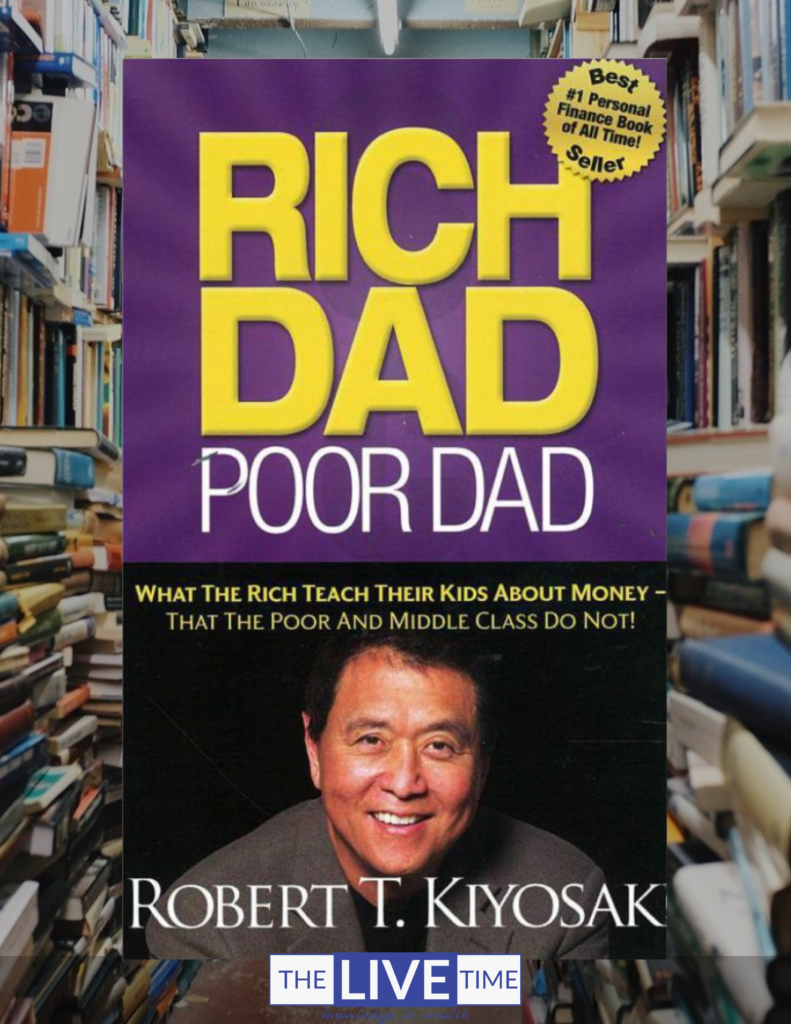
Rich Dad Poor Dad is about Robert Kiyosaki and his two dads—his real father (poor dad) and the father of his best friend (rich dad)—and the ways in which both men shaped his thoughts about money and investing. You don’t need to earn a high income to be rich. Rich people make money work for them.
The rich father in this book teaches two small boys some invaluable lessons about money through their own experiences. The most important one is undoubtedly to understand on how to best use your mind and your time to create your own wealth through business and investments.
Get out of the rat race. Learn how to seize opportunities, find solutions, take care of your business and investments and most especially, learn how to make money work for you and not be its slave!
3. The Total Money Makeover by Dave Ramsey

Imagine a life without debt. You’d have no monthly payments on credit cards, car loans, student loans or mortgages. However, most people are in denial about their debt problems and don’t know how to fix them. The solution is the TotalMoney Makeover plan that will help you get out of debt by following seven steps: 1) Save $1,000; 2) Pay off all your debts from smallest to largest balance; 3) Build an emergency fund; 4) Invest in retirement savings; 5) Save for college with cash and scholarships instead of taking out student loans; 6) Pay off your mortgage completely so that you can live free of financial obligations later in life when you’re retired; 7 ) Invest wisely so that your money grows faster than inflation over time so it does more work for you while you do less work yourself.
Getting financially fit requires you to take a hard look at your beliefs and behaviors around money. If you’re not wealthy, the only person responsible for that is you. You’ve probably been buying into instant gratification and appearing wealthy.
If you want to be wealthy, you must work hard and save your money. No one is going to help you get rich except for yourself, so don’t expect anyone else to do it for you.
4. Think and Grow Rich by Napoleon Hill

Think and Grow Rich is a famous best-selling book on personal development by Napoleon Hill. It was ranked as the sixth best-selling business book by the Business Week magazine. In 1908, while interviewing Andrew Carnegie, one of the richest men in those times, Napoleon Hill was given a challenge to interview other successful people to discover the simple formula for success. During the process, this book was written.
It is a pearl of combined wisdom from more than 500 most successful individuals which has been pinned into 13 principles. It is an all-time self-help classic for readers which helps them become more effective in spite of the uncertainties coming their way. The book has been an inspiration to many people for decades. Philosophical and, at times spiritual, Think and Grow Rich has become an influential book for entrepreneurs, CEOs, and individual thinkers alike.
The book doesn’t just address money but also your relationships and experiences that we have and believe in.
5. The Richest Man in Babylon by George Clason
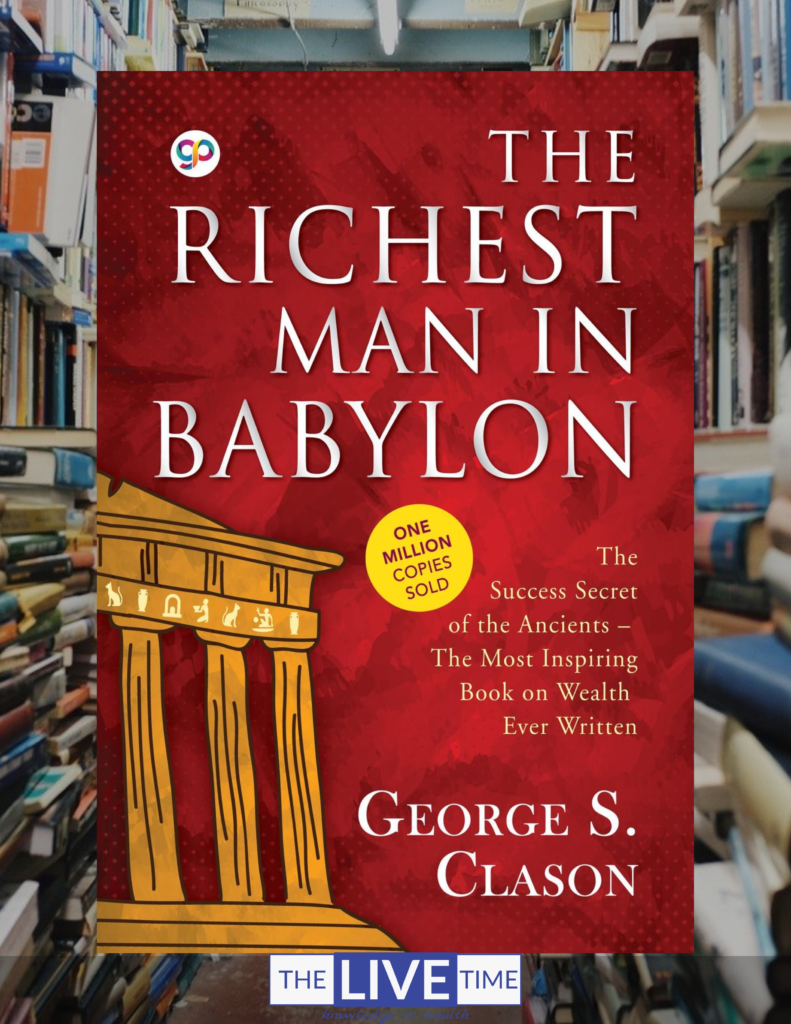
The prosperity of a nation depends upon the financial prosperity of its citizens. The book The Richest Man in Babylon by George S Clason is termed as a guide to one’s financial success. This book takes us back to an ancient city called Babylon. Babylon was known as the wealthiest city of our ancient world because its citizens were known to be the richest people of their time.
The book focuses on the reasons as why the people of Babylon were rich:
- They appreciated the value of money,
- They followed sound financial principles when dealing with money,
- They created a future source of income for themselves.
According to the author, an individual’s success is measured by the amount of money he/she has, and money will only come to an individual once he/she understands the principles of it. This book is a timeless lesson because the principles of money are the same today as they were 5000 years ago.
“A reader lives a thousand lives before he dies. A man who never reads lives only one” – George R. R. Martin
So far we saw 10 books on financial education for beginners | The Live Time. Let’s check remaining 5 of the list.
6. The Intelligent Investor by Benjamin Graham
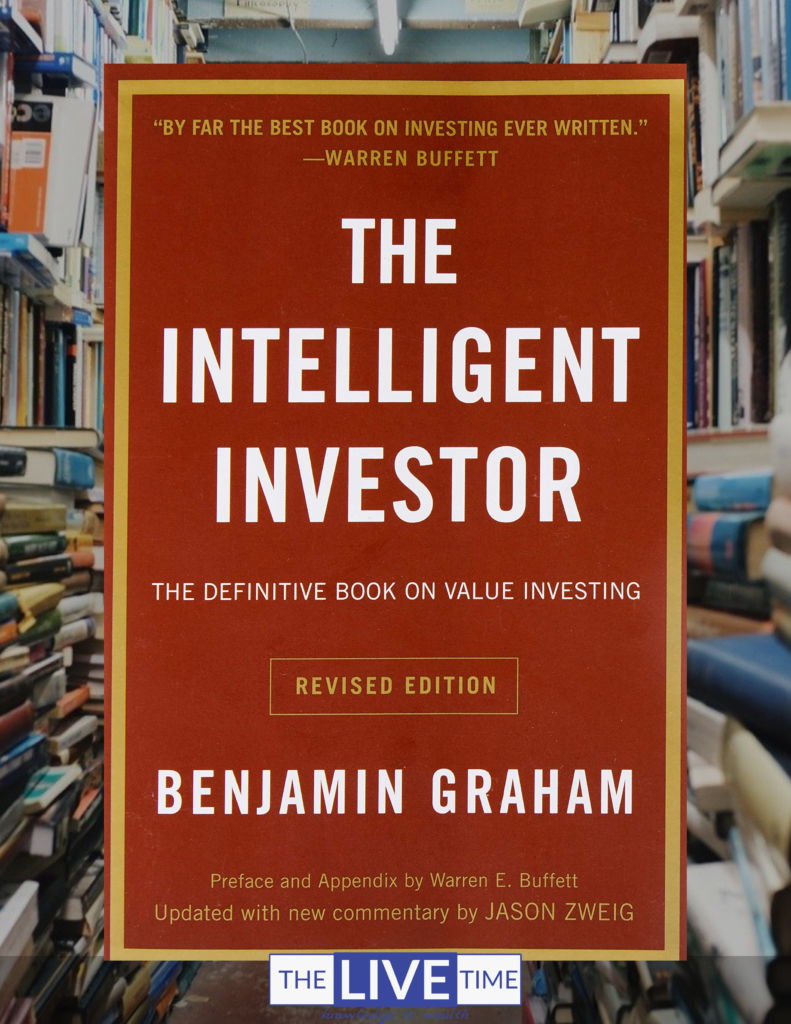
Successful investing doesn’t require any super normal IQ, insider information, or great luck. Instead, what is needed is a sound intellectual framework for making decisions, combined with an ability to keep emotions from ruining it. In “The Intelligent Investor”, author Benjamin Graham presents such a framework together with a logic that will help to keep our emotions in our control. His investing strategy has been one of the most successful ones during the last 100 years.
This book takes us into the deep world of value investing and teaches us how to select stocks, the difference between “investment” and “speculation”, and how to creatively invest our wealth by selecting stocks and bonds of various kinds.
7. When Genius Failed by Roger Lowenstein
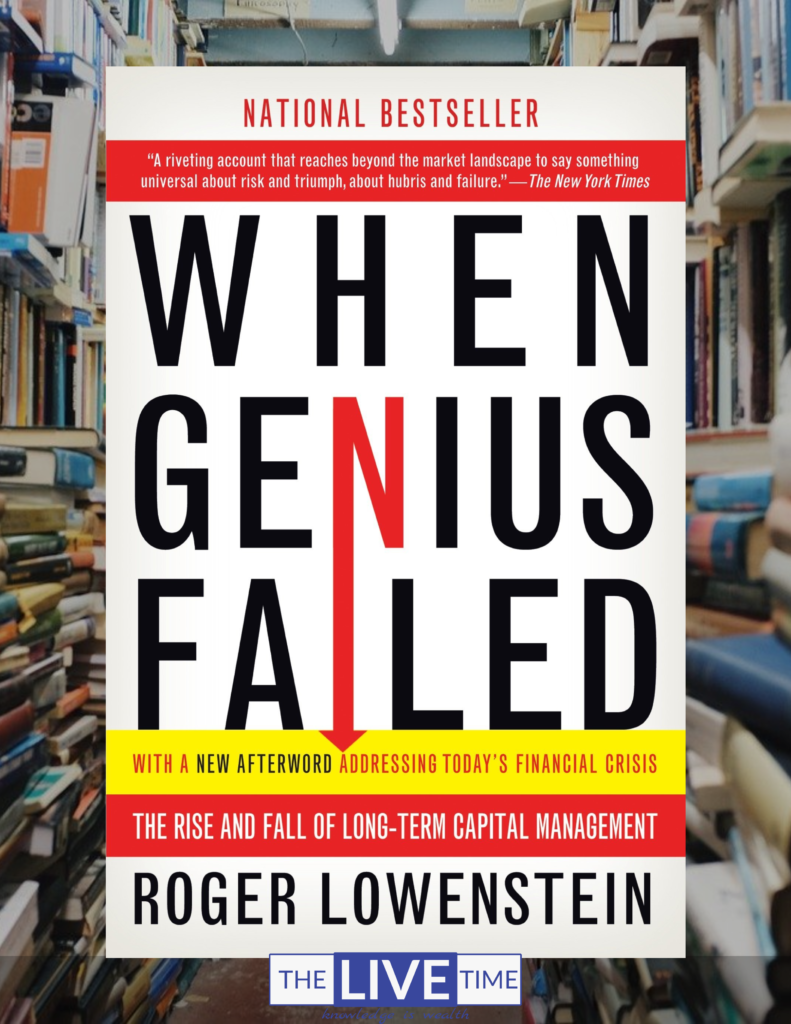
Icarus was given a pair of wings made by his father, Daedalus. He flew with those wings until he got too close to the sun and the wax holding them together melted. Icarus fell into the sea below and drowned.
In this famous story, Icarus flies too close to the sun and his wings melt. This fable can be used as a metaphor for Long-Term Capital Management (LTCM), which dominated financial markets in the 1990s. Like Icarus, they were very successful but then went too far and crashed due to their own hubris. The key points of this passage will provide you with an important reminder that no company or person should think they are better than everyone else because it’s impossible for them to beat the market on their own.
In these key points you’ll discover why we’re not rational when making decisions; also academics might not be good at giving advice about money because they don’t have enough real world experience.
8. The Little Book of Behavioural Investing by James Montier
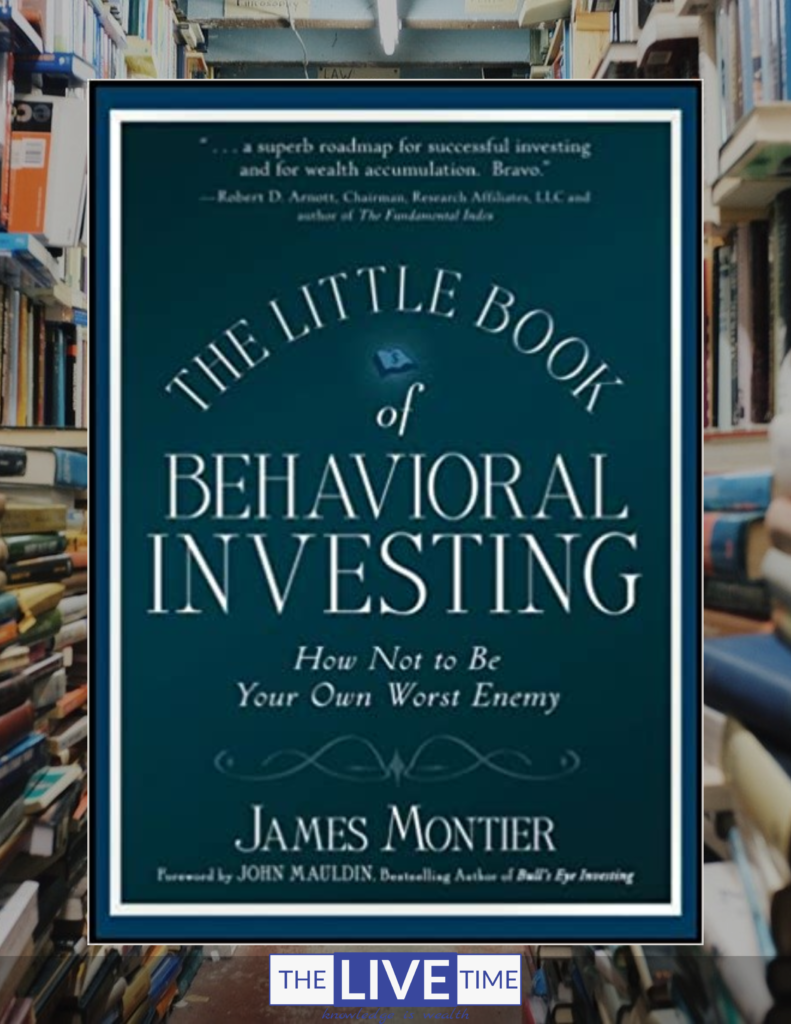
A detailed guide to overcoming the most frequently encountered psychological pitfalls of investing
Bias, emotion, and overconfidence are just three of the many behavioral traits that can lead investors to lose money or achieve lower returns. Behavioral finance, which recognizes that there is a psychological element to all investor decision-making, can help you overcome this obstacle.
In The Little Book of Behavioral Investing, expert James Montier takes you through some of the most important behavioral challenges faced by investors. Montier reveals the most common psychological barriers, clearly showing how emotion, overconfidence, and a multitude of other behavioral traits, can affect investment decision-making.
9. The Millionaire Fastlane by M J DeMarco

Imagine that you want to get from point A – your current financial situation to point B – financial freedom. Now, also imagine that you want to do this while you’re still young, healthy, and vibrant of energy, then you’d want to do this as fast as possible, am I right?
As you want to get there as fast as possible, would you rather choose to walk there? Without a map? To drive there in a slow tractor? Or would you rather drive a Formula One car, with the top speed of 372 km/h?
However, most people do not act like this in real life
Most people do not choose Fastlane, but the Slowlane or even the Sidewalk
- Your beliefs form your actions. Try to change your attitude to that of a fastlaner and you will see results in your personal finances down the road.
- The sidewalk is mathematically predisposed towards poverty. The slowlane is predisposed towards mediocrity, and …
- The fastlane is predisposed towards wealth. We want to stack the mathematical odds in our favor.
- A fastlane business should fulfill as many as possible of the following five commandments: control, entry, need, time, and scale.
“books on financial education for beginners”
10. Broke Millennial by Erin Lowry
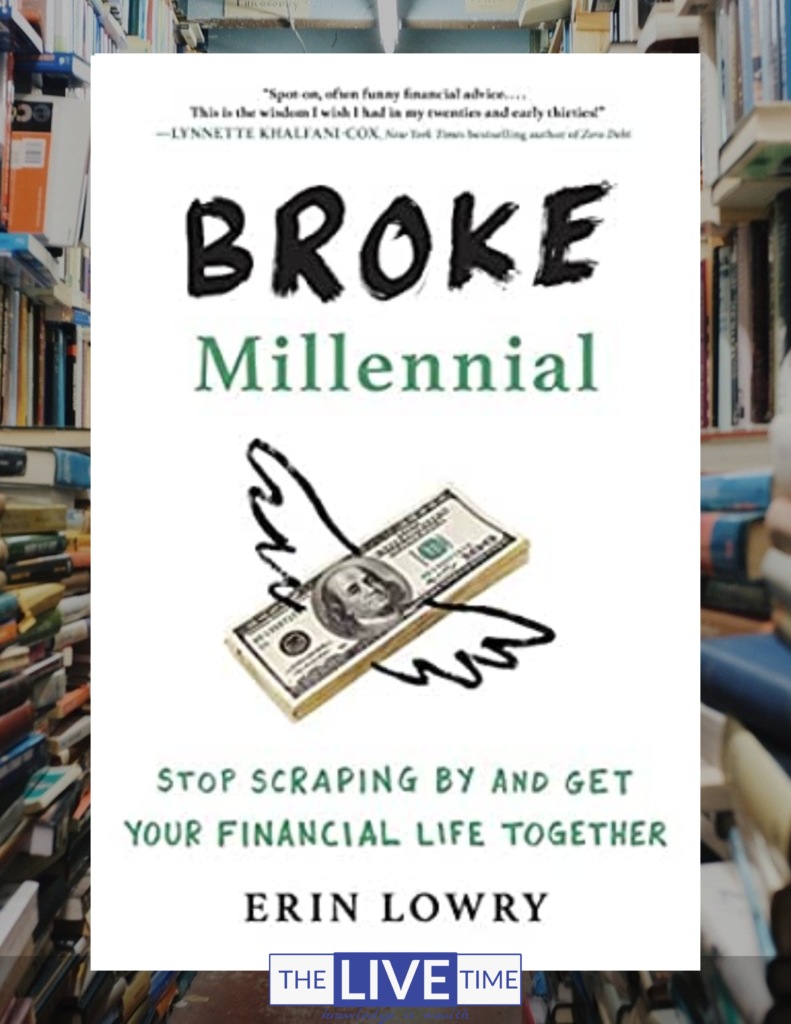
If you’re out to dinner with a large group of people, it may be awkward when the bill comes. You can either fight over who’s paying for what or offer to pay for part of the bill yourself. In that case, other people will gladly divide up the rest of the bill among themselves.
Money can be a scary topic for young people or those who are struggling financially. They’re worried about paying their bills and putting money aside, so they don’t have enough saved up to live comfortably in retirement.
The journey to financial success begins with a single step, such as saving $10 from your paycheck every month. You can also move your banking online for better interest rates.
Personal finance expert Erin Lowry will show you how even the poorest millennial can become financially successful. She’ll also explain why budgeting is different for everyone, and how much money you need to save in case of emergencies.
If you need any help in your financial journey, we can help you reach your financial goals with some proven ways. Just get in touch with us, and we will get back to you with you as early as possible.
Note: This article is for informational purposes only. It should not be considered Financial or Legal Advice. Not all information will be accurate. Consult a financial professional before making any significant financial decisions.
Follow The Live Time on Facebook & Twitter.
- What are the ways to get financial freedom?
- Lifestyle Comparison between Rich and Poor | Rich vs Poor | Signs of poor life
- Powerful Statements from Climate Activist Greta Thunberg
- 100 motivational quotes to inspire in life
Have you read any of these books? What did you think about these 10 books on financial education for beginners? Let us know in the comments below.


